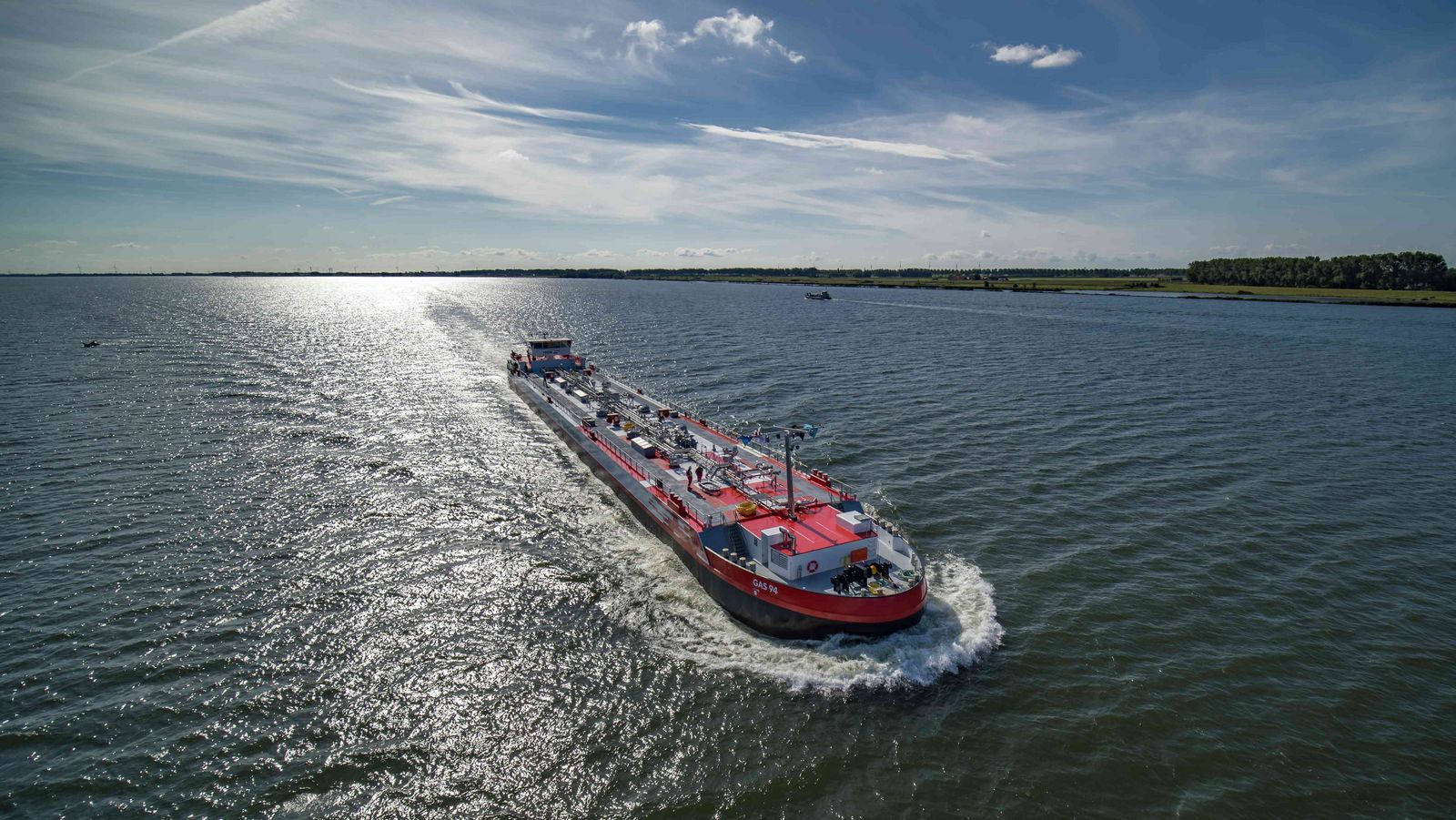
Christian Lorenz
Press Officer
Telephone 0221 / 390 11 90
E-mail lorenzc(at)hgk.de
Häfen und Güterverkehr Köln AG
Press Office
Am Niehler Hafen 2
50735 Cologne
07.02.2025 | Press Release
Duisburg. The Federal Ministry for Digital and Transport's (BMDV) requirements planning for inland waterway transport, which was presented yesterday, is being criticised, but as a result there is also a sense of optimism among ports, inland waterway transport and logistics companies as well as industry circles. On the one hand, they criticise the fact that the federal government's ideas do not take sufficient account of the key challenges and potential of the waterway system. However, all those involved now want to work even harder to strengthen this mode of transport in a joint effort agreed at an event in Duisburg. The industry's key concerns for a sustainable mode of transport include a holistic transport forecast and a modal split that realistically takes capacities and bottlenecks into account. Another focus is the desire for a more precise and holistic analysis of the situation at all sea and inland ports on the North Sea, Baltic and Rhine routes in order to target investments in infrastructure.

The energy transition in Germany is only conceivable with a significant contribution from inland shipping to the future modal split and modern fleets like that of HGK Shipping. © HGK Shipping
Against the backdrop of the published study, numerous representatives from the shipping, logistics and industrial sectors met in the Ruhr region on Thursday to discuss waterway transport as a driver of economic strength and location attractiveness under the motto "This is how we make Germany fit for the future". Schmid Mobility Solutions, in cooperation with the Duisburg-Ruhrort Shipping Exchange, invited renowned speakers from ThyssenKrupp Steel Europe, BASF, Air Liquide, Currenta, Rhenus, Evonik Industries, duisport and HGK Shipping as well as guests from industry, ports, shipping companies and logistics providers to the Duisburg Haniel Campus. The event is intended to serve as the start of a series of discussions that will increasingly focus on the importance of inland shipping and the systemic relevance of waterways for industry and trade in the port hinterland, particularly on the Rhine, as well as for the energy transition.
In their presentations, the experts emphasised where they see a need to catch up in the federal government's paper and which approaches can provide new impetus for the further development of the waterway system. The current demand planning is too stuck in old patterns and considerations of the current freight mix. In reality, not least in view of the future transformation of the economy and the resulting demand for renewable energies, the concepts designed are already much further advanced. The ramp-up of a hydrogen-based economy and the parallel transport of carbon dioxide residues from factories to offshore fields and the ship designs developed for this purpose are exemplary of the new business models of the industry, which is rich in tradition but always reacts flexibly to customer needs.
For these reasons, duisport CEO Markus Bangen emphasises: "The energy transition is unthinkable without inland shipping. In the coming years, a significant proportion of hydrogen will be transported in the form of ammonia. Irrespective of possible pipeline projects, inland waterway vessels are the means of transport of choice for this. The EU Commission has also long recognised the importance of waterways for the future viability of the business location and is supporting numerous projects with funding."
"The BMDV's current planning does not do justice to the real challenges and opportunities of the energy transition and requires a methodological adjustment."
The planning currently published by the federal government is based on a modal split that clearly favours road and rail transport until 2040. Steffen Bauer, CEO of HGK Shipping, therefore criticises the study: "The BMDV's current planning does not do justice to the real challenges and opportunities of the energy transition and requires a methodological adjustment. Forward-looking demand planning must take a holistic view of the situation in order to do justice to the waterway system and the inland waterway vessel as a sustainable mode of transport of the future."
The companies duisport and HGK Shipping alone forecast an annual transport volume of between 20 and 25 million tonnes ofCO2 and ammonia on the waterways. HGK Shipping CEO Steffen Bauer continues: "Our country's prosperity is primarily based on its attractiveness as a location for industry and trade. This is not feasible without functioning logistics with modern infrastructure and a smart modal split. Only when the real developments on the market and the requirements of the shipping industry are understood and incorporated can the individual modes of transport be developed according to their respective strengths and thus make a significant contribution to the decarbonisation of our local economy."

Press Officer
Telephone 0221 / 390 11 90
E-mail lorenzc(at)hgk.de
Häfen und Güterverkehr Köln AG
Press Office
Am Niehler Hafen 2
50735 Cologne
We use cookies on our website. Some of them are essential to ensure functionality, while others help us to continuously improve our online offering. You can find more detailed information in our privacy policy and on our cookie page (see footer). You can also edit your settings there yourself at any time.
Here you can select or disable different categories of cookies on this website. By clicking on the info icon you can learn more about the different cookies.
